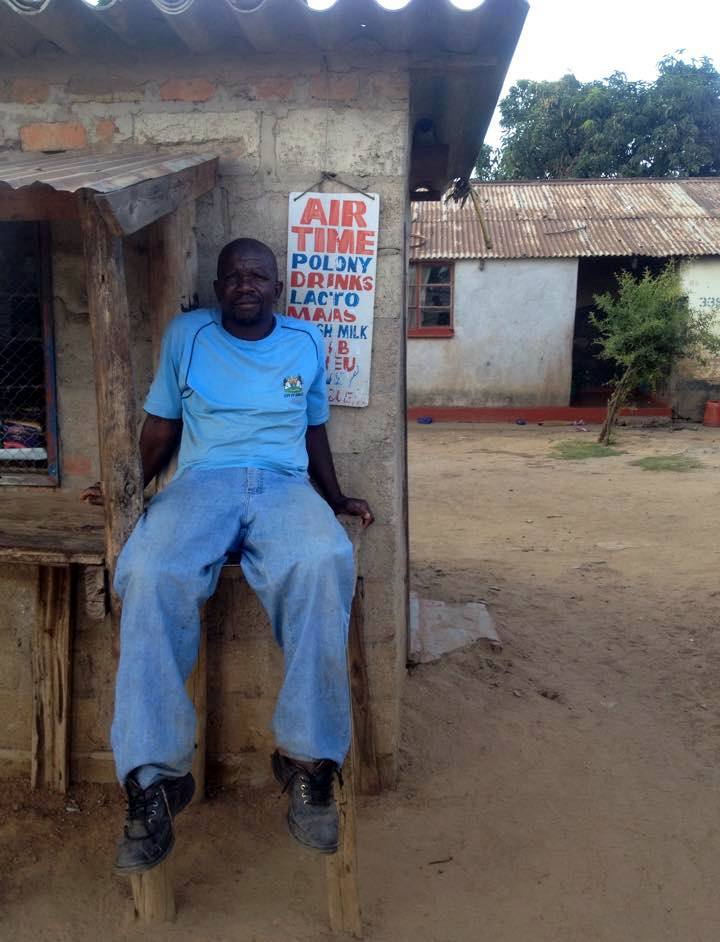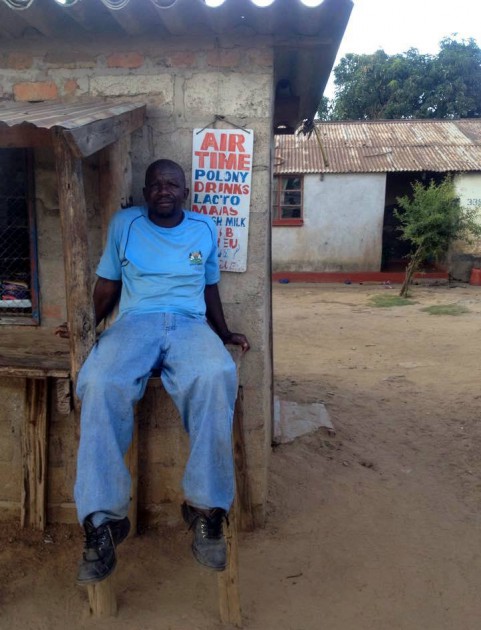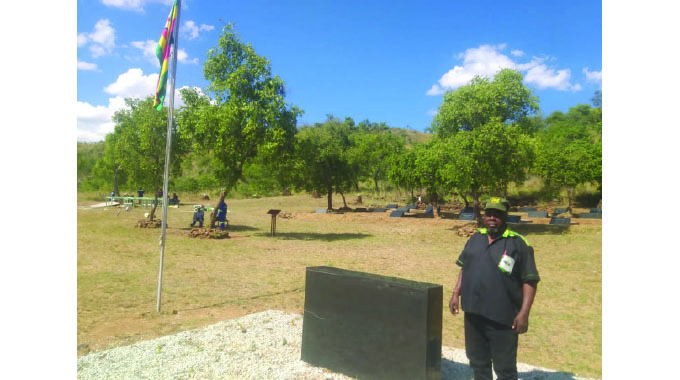Bombing their way to freedom

Christopher Charamba Features Writer
December 11, 1978 is a historic day for Zimbabwe.
A day most people might not immediately recall but one that is certainly burnt into the memories of those who lived in Mbare at the time. At 9pm that day ZANLA forces bombed Shell fuel tanks in Southerton, Salisbury.
It was a well-orchestrated attack that brought the liberation struggle to the doorstep of the Rhodesian government. As the fuel caught fire, the tanks exploded sending huge flames into the night sky.
The flames were so large they could be seen as far as 50 kilometres away. A spectacle from that distance but a much more frightening one from up close. April 18 is Independence Day and Mbare residents who witnessed the Shell bombings recall one of the important historical incidents that helped shape the country’s future.
Sixty-six year old Richard Togi, a resident of Mbare, recalls that day vividly. He was 29 years old when all hell broke loose.
“I was indoors at the time drinking a few beers as it was a weekend when I heard a loud explosion. I did not know what it was and did not pay much attention as I was tired and did not think it was that serious,” he said.
It was only after his mother came rushing into the house telling him that there was a huge fire in the sky that he decided to step outside.
“I was shocked by what I saw and I think it actually sobered me up. The sky was burning and there were loud explosions,” Mr Togi recalled.
He added that his mother felt they should get up and leave for their safety but he convinced her to stay as they were unsure about what was happening and did not want to panic.
“The fire was close but it did not seem a threat at the time and so we decided to stay in our home and wait for information if something terrible was happening. We did however see some people running as far away as they could,” the Mbare resisdent said.
Another witness of the huge fire Mr Dominic Taruvinga (58) said he had just returned from work and was sitting in his yard with some of his friends and neighbours.
“We knew that something was amiss because the whole day there was increased security presence and police asking to see IDs. We did not know what was coming but there was some tension in the air.
“I had just gotten home from work and I was sitting in my yard with some of my neighbours when we heard loud bangs and immediately a flame went up to the sky. We were amazed but did not know what it was, in fact we thought it was the Olivine factory that had caught fire,” Mr Taruvinga commented.
The Shell fuel tanks were close to Nazareth Hospital and residential areas in Mbare. The bombing caused mass hysteria and panic forcing people to flee their homes in all directions.
“While we stood watching from my yard we saw people running away from where the flames were coming. There were people and dogs moving in all directions fearing for their lives. I asked them what was going on and it was then that we found out that the Shell fuel tanks had been bombed.
“We continued to hear explosions during the night, the tanks would be thrown into the air and explode. The fire was massive and although we were at a safe distance, we could feel the heat right up close to our faces.
“I had never experienced anything like that and did not expect to. The war that was being fought in the bush had finally come to town and we were not safe is what we thought,” he said.
Mr Taruvinga added; “At about 3am there was a massive explosion that even shook our homes. I had managed to fall asleep earlier but this noise woke me up. The flames rose to their highest and we thought we were in serious danger now.
“Some people who were admitted into the hospital close to the fuel tanks discharged themselves and were running away as far as they could.”
Mbuya Cecilia Joram said she remembered seeing people fleeing as far as they could. “The fire was massive. There is nothing like it. We did not know what to do and so we thought we should move away in case we were going to be victims,” she said.
“It is not an easy memory to forget as it was very serious. I had been in a situation like that and was fearful for my family. We thought the fire would burn our house but were also scared to make the decision to just leave,” Mbuya Joram added.
The fire lasted for close to a week according to Mbuya Joram and it took helicopters to put out the flames. The whole township was affected by the fire and some people were taken in by friends and relatives as it was scary for them to go back to their homes close to the flames.
The decision to leave their home was not a difficult one for Mr July Makune though. Only 11 years old at the time of the explosion, he recalls packing and fleeing out of fear.
“We heard the explosion and thought that is was at the school then we were told that it was Shell that was being bombed.
“Fear immediately set in and with all the people we saw running we decided as a family to move away for our safety.
“There were buses known as Zimbabwe Express Motorway which started transporting people for free as they fled from the fire. Some people went as far as Seke though we slept close to the Coca Cola Corner out on the street.
“From as far as there we could hear the explosions and see the flames. This further reinforced the idea that it was not safe to be at home. People left their homes open and unlocked especially after that 3am explosion,” he commented.
Returning to their home the next day Mr Makune said he and some of his friends decided to visit the petrol tanks to get an up close look at what was going on.
“We got closer to the depot and could see drums being thrown into the air and exploding. It was not safe for anyone and the fire fighters on the scene were trying as best as possible to put out the fire.”
Helicopters had to be brought in from South Africa to put out the flames that raged on for days. According to Mr Taruvinga, on the second day it began to rain a sooty rain that turned everything black but it was unable to douse the flames.
“The helicopters from South Africa were flying in water and dropping sand on the flames to try and put them out. It was no easy task and from where we were in Mbare you could feel the heat.
“We did not think it was going to get to this but were left full of fear as the future of the liberation struggle had taken an interesting turn,” he added.
The plan to bomb the petrol tanks was crafted in Mozambique by the high command which included the late Comrade Josiah Tongogara, Cde Mark Dube and Air Marshall Perence Shiri and was carried out by Comrades David Mushangwe aka Lobo, Member, Mukumbizi aka Nhamo, States America Mudzvanyiriri, Brian, Norest, Poison and Damage Bombs.
……..The Shell petrol tank bombing, how it happened.
On December 11, 1978 eight brave men risked their lives to bring the liberation struggle from the bushes to Salisbury to illustrate how determined they were to secure their freedom from colonialism.
A plan to bomb the Shell petrol tanks in Southerton was crafted in Mozambique by the high command which included the late Comrade Josiah Tongogara, Cde Mark Dube and Air Marshall Perence Shiri and was carried out by Comrades Lobo, Member, Nhamo, States, Brian, Norest, Poison and Damage.
Comrade Lobo, one of the operatives who took part in the bombings, recounted the event saying they were selected by the high command while in Tete.
“We were chosen by Cdes Perence Shiri and Edwin Munyaradzi. We were in Tete and they came saying they were looking for operatives who were familiar with an urban warfare. After the interviews nine of us were selected but only eight carried out the mission,” he said
It took the operatives close to five months to walk from Mozambique to Domboshava where they set up their base of operations. Once set up in Domboshava they began looking for an entry point into Harare.
The operatives were assisted by a tomato farmer who would ferry them into town and they conducted their reconnaissance for close to a month.
Once they had selected their target, they managed to find an old lady Mbuya Hwiza who agreed to house them while they prepared their attack.
A week before the bombing took place four of the operatives moved into Mbuya Hwiza’s house while the other half stayed in Highfield. As the days advanced word got out that there was to be an attack and so the comrades had to move up their plans.
“Word was getting out that we were preparing an attack so we had to move up our plans. The other four comrades who were in Highfield came to Mbare and stayed next door to where we were.
“We had buried some of our weapons, M90 rocket launchers and AK47s in Mbuya Hwiza’s yard. On the day of the attack we waited till about 4pm then got into a taxi that belonged to Mr Mushowe, Mbuya Hwiza’s neighbour.
“After he told us that there was word about the comrades staying at his house, we decided to change cars and got into two different taxis belonging to Zuva and Mupostori. We were accompanied by Mbuya Hwiza’s son Norman and Tafi, Mr Mushowe’s son,” Cde Lobo recalled.
“We selected a target that we knew would not pose any risk to the lives of the masses as we had strict instruction not to hurt people and even waited for the people at the nearby bus stop to get transport before we attacked,” he added
The operatives travelled to their post by the Kopje where at around 9pm they launched the attack on the fuel tanks. Using the M90 and AK47 rounds the comrades carried out their orders to escalate the war and send a clear message to the Rhodesian forces.
It was an unprecedented attack and after completing the objective the comrades hid in Nyabira before they hijacked a bread transport vehicle and returned to Domboshava. The Rhodesian forces soon found out about their hiding place and launched an attack on them.
Some of the comrades got hurt but most were able to flee and returned to Mozambique. Only Norman Hwiza was captured and arrested. He was released from prison at independence in 1980.
For feedback contact: [email protected] <mailto:[email protected]> or [email protected]








Comments